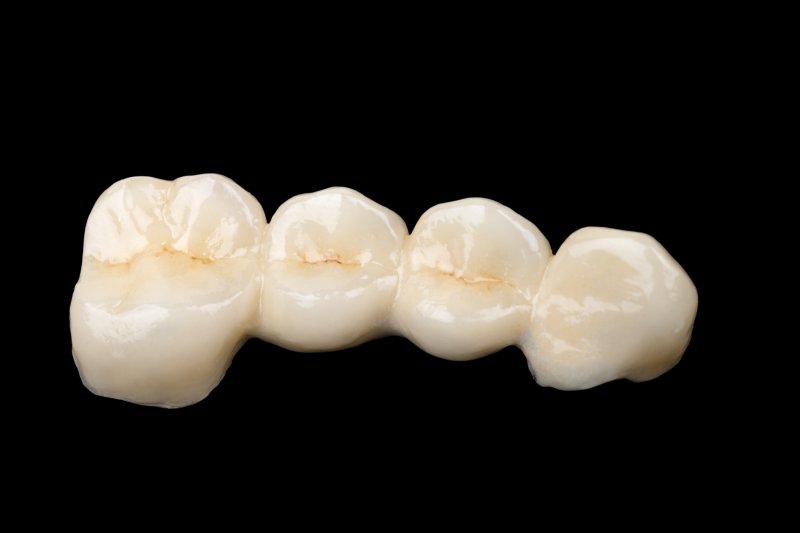
Have you invested time and money on a tooth replacement solution that is no longer providing the support you need? When a fixed bridge is put into place, it is vital that you take proper care of your oral health and avoid unhealthy habits, as it can lead to more timely and costly procedures to adequately remedy. What can cause dental bridge failure in Lincoln, and what can you do to avoid it? Read on to hear what a local dentist has to say on the topic.
Why Does a Dental Bridge Fail?
One of the first things your dentist will tell you after having any type of restorative treatment is to make sure you are taking proper care of your oral health at home. This doesn’t just include sticking to your morning and nighttime brushing, flossing, and rinsing routine, but it also means eating a nutrient-rich diet and avoiding bad habits.
If you’ve received a dental bridge in the past and are wondering why it appears to be failing, here are a few reasons why it can happen:
- Practicing Unhealthy Habits – From eating hard, crunchy foods to grinding your teeth to chewing on ice, these bad habits can spell disaster for your bridge. Not only can they damage your restoration, but they can also harm the natural teeth that are supporting it.
- Inadequate Bone Support – Having a healthy and strong jawbone is necessary to ensure your dental bridge remains in place. Over time, if the bone begins to weaken or deteriorate, the restoration will no longer offer the quality your smile needs, resulting in an alternative solution to restore your smile.
- Avoidance of Regular Dental Checkups – Although these teeth are artificial, it is still necessary to see your dental team every six months for regular checkups and cleanings. By forgoing these visits, you run the risk of plaque-causing bacteria building up and negatively impacting your healthy teeth and gums.
- Poor Oral Health – Not only is it detrimental to your bridge to disregard regular professional care, but if you’re not properly cleaning your smile at home, you can expect the lifespan of your dental bridge to be cut short.
- Lacking Adequate Tooth Support – A dental bridge must have the necessary support from abutment teeth to ensure it remains in place. If these teeth are compromised in any way (i.e. tooth decay, damage), you will begin to notice a difference in your bite force and distribution, meaning it is failing.
Should you experience any of these scenarios, it is important to speak with your dentist as soon as possible. Depending on the severity of the issue, it may be possible to remove the old bridge and replace it with a new one; however, it may also be necessary to look into alternative tooth replacement solutions, such as dentures or partials or dental implants.
How to Avoid Possible Failure
If you want to avoid the potential of your dental bridge failing, there are a few things you can do, including:
- Being diligent in your oral hygiene routine. This means brushing your teeth twice a day for two minutes, flossing at least once a day to remove anything underneath the bridge or between your natural tooth that can lead to tooth decay or gum disease, and rinsing with an antimicrobial mouthwash.
- Avoiding hard, crunchy foods that can easily damage your real and artificial teeth.
- Eat a well-balanced, nutrient-rich diet that will help to improve your teeth and gum health.
- Maintain regular appointments with your dentist twice a year.
Dental bridge failure is not a common occurrence, but should it happen to you, be diligent in your pursuit of treatment. With the right dental team and at-home instructions, they can have you smiling with confidence once again.
About the Practice
At Pioneer Greens Dentistry, Drs. Chris and Claire Haag as well as Dr. Sean Pauley believe in providing patient-centered care. Whether you need a general checkup and cleaning or assistance when it comes to a failed dental bridge, our team of professionals is here to provide the services you need to enjoy a healthier, more reliable smile. If you have invested in a tooth replacement solution that is no longer working for you, contact us at (402) 483-7502.
